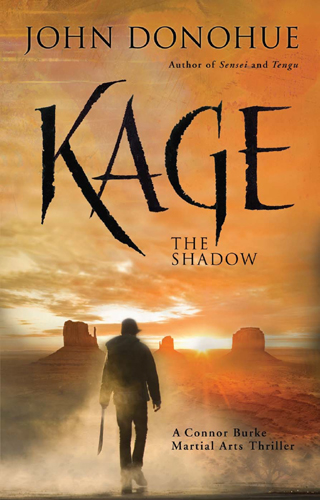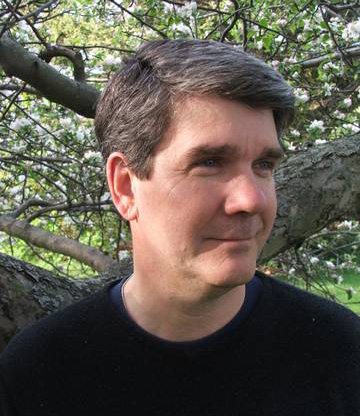Connecticut's Exclusive MMA Coverage
For Connecticut Residents Who Love MMA
ARCHIVED STORY WINTER 2013
BOOK REVIEW:
KAGE
A Novel by
John Donohue
KAGE, the latest book by Connecticut-based author John Donohue, is the fourth in a series of novels about Connor Burke; a college professor who teaches Eastern philosophy and also trains in traditional Japanese martial arts under his sensei Yamashita. While the book is essentially nothing more than a pulp thriller that doesn't take itself too seriously, Donohue's knowledge of Eastern thought, Kendo and martial arts in general provides it with gravity.
Donohue, who taught at Albertus Magnus in New Haven and is trained in Kendo (see our interview with him), will not disappoint readers who enjoyed previous books in the series that began in 2003 with SENSEI. KAGE wisely digresses from the pattern established in the previous three books, which all featured a climatic confrontation between the protagonists and an evil martial artist.
Burke, who is now working primarily as an instructor at Yamashita's dojo, attends a conference of mystery writers in Arizona (Donohue may be satirizing his fellow thriller writers in this part) and is subsequently hired by a wealthy resort owner for a research project. Burke's client is convinced that her father, who wrote New Age-oriented books and was dismissed as a quack in academic circles, was dispatched by a secret order of Ninja-like Asian killers for revealing too many of their secrets.
Donohue steers clear of the obvious cliches that the book appears poised to yield. The story focuses instead on the dead man's shift from Japanese mysticism to Indian spirituality, which caused him to stumble on a secret that a group of criminals clearly based on real-life gang MS-13 will kill to protect. The plot, while engaging, becomes too murky at times.
Burke remains a liable protagonist; a grounded, white-collar man who just happens to have trained intensively in a combination of fighting arts. His embrace of the Zen principles associated with them is presented with depth, humor, believability and a refreshing lack of pretension. People who have read the previous books, which are offered by the YMAA Publication Center, will probably enjoy how Burke's life and career have changed as the series has progressed.
Donohue demonstrates dry humor and healthy cynicism through Burke's first-person narration in all four books as he dismisses how Westerners interested in Asian culture enshrine it to a fault. His deflation of the mystique surrounding THE BOOK OF FIVE RINGS in SENSEI , for example, is classic.
When Donohue pits Burke and Yamashita in fights with exotic enemies in who seem almost like Earth-bound versions of STAR WARS villains, it seems to contradict the more grounded attitudes expressed earlier in the books. He commendably avoids it in KAGE, although the final confrontation seems anti-climatic.
The relationship between Burke and Yamashita is handled differently as well. The previous books have them function as a team similar in some ways to Sherlock Holmes and John Watson, with the twist being that Burke (effectively the Watson of the pair) is the true hero of the series.
KAGE has the two characters spend much time apart and focuses largely on how Yamashita influences Burke's life in relatively positive and negative ways. It reinforces the theme that the martial arts, while they can preserve and enrich the lives of those who practice them in the right context, are still at their core tools of force.
KAGE is not a bad place to start for anyone who has not read this series and enjoys thrillers with a martial arts theme. Anyone who has read the previous entries may enjoy how the book avoids the boiler plate syndrome that typically plagues series fiction.
Reviewed by Brian Woodman Jr.


